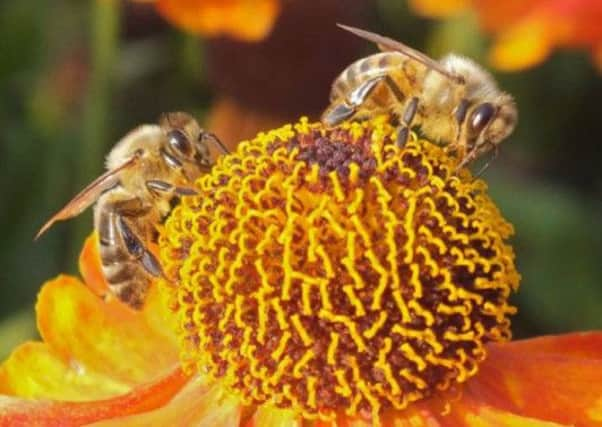Find out how you can help the honey bee


The answers to these questions, along with other fascinating secrets of the bee hive, will be revealed at the Laboratory of Apiculture and Social Insects’ (LASI) first ever open day, at the University of Sussex this Saturday (July 20) from 1pm to 5pm.
Population decline among honey bees and bumblebees remains a major concern not just for the scientists who study them but also for the farmers who rely on them to pollinate valuable food crops, and for the public, who just like to see bees going about their business in the garden.
Advertisement
Hide AdAdvertisement
Hide AdSince 2008, the LASI has been working on projects to find out what can be done to improve our understanding of the challenges facing honey bees.
Now the public has a chance to find out about how those projects are supporting honey bee health and well being – and learn what can be done to help the bee.
The LASI is also home to important research into other social insects, particularly ants, and there will be an opportunity to find out more about these fascinating insects too.
The open day begins at 1pm and will include a range of activities and displays. Visitors will also have a chance to see the lab, the observation hives and the bee garden at the LASI.
Advertisement
Hide AdAdvertisement
Hide AdRefreshments will be available and entrance for the afternoon is free. Anyone wishing to attend is asked to fill in an online booking form:
There will be a range of demonstrations throughout the day with advice on the best plants to grow to attract bees.
Professor Francis Ratnieks, who is the Director of LASI, says: “Bees are remarkable animals with a strong connection to human life and culture and I’m sure visitors to the open day will be inspired by the work we do here.
“We hope that gardeners, beekeepers, garden centre staff, parks departments, conservationists, teachers and schoolchildren will come along and learn more about amazing honey bees and what they can do to make Britain more bee friendly.”